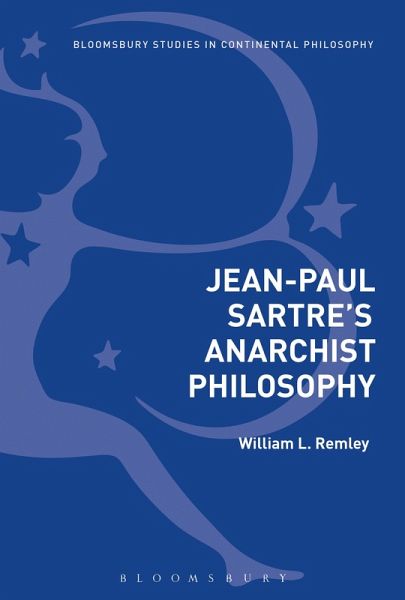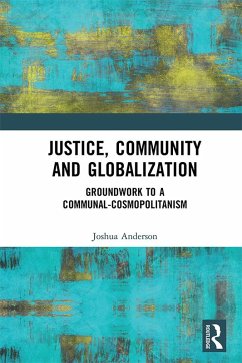
Jean-Paul Sartre's Anarchist Philosophy (eBook, PDF)
Versandkostenfrei!
Sofort per Download lieferbar
28,95 €
inkl. MwSt.
Weitere Ausgaben:

PAYBACK Punkte
14 °P sammeln!
The influence of anarchists such as Proudhon and Bakunin is apparent in Jean-Paul Sartres' political writings, from his early works of the 1920s to Critique of Dialectical Reason, his largest political piece. Yet, scholarly debate overwhelmingly concludes that his political philosophy is a Marxist one. In this landmark study, William L. Remley sheds new light on the crucial role of anarchism in Sartre's writing, arguing that it fundamentally underpins the body of his political work. Sartre's political philosophy has been infrequently studied and neglected in recent years. Introducing newly tra...
The influence of anarchists such as Proudhon and Bakunin is apparent in Jean-Paul Sartres' political writings, from his early works of the 1920s to Critique of Dialectical Reason, his largest political piece. Yet, scholarly debate overwhelmingly concludes that his political philosophy is a Marxist one. In this landmark study, William L. Remley sheds new light on the crucial role of anarchism in Sartre's writing, arguing that it fundamentally underpins the body of his political work. Sartre's political philosophy has been infrequently studied and neglected in recent years. Introducing newly translated material from his early oeuvre, as well as providing a fresh perspective on his colossal Critique of Dialectical Reason, this book is a timely re-invigoration of this topic. It is only in understanding Sartre's anarchism that one can appreciate the full meaning not only of the Critique, but of Sartre's entire political philosophy. This book sets forth an entirely new approach to Sartre's political philosophy by arguing that it espouses a far more radical anarchist position than has been previously attributed to it. In doing so, Jean-Paul Sartre's Anarchist Philosophy not only fills an important gap in Sartre scholarship but also initiates a much needed revision of twentieth century thought from an anarchist perspective.













